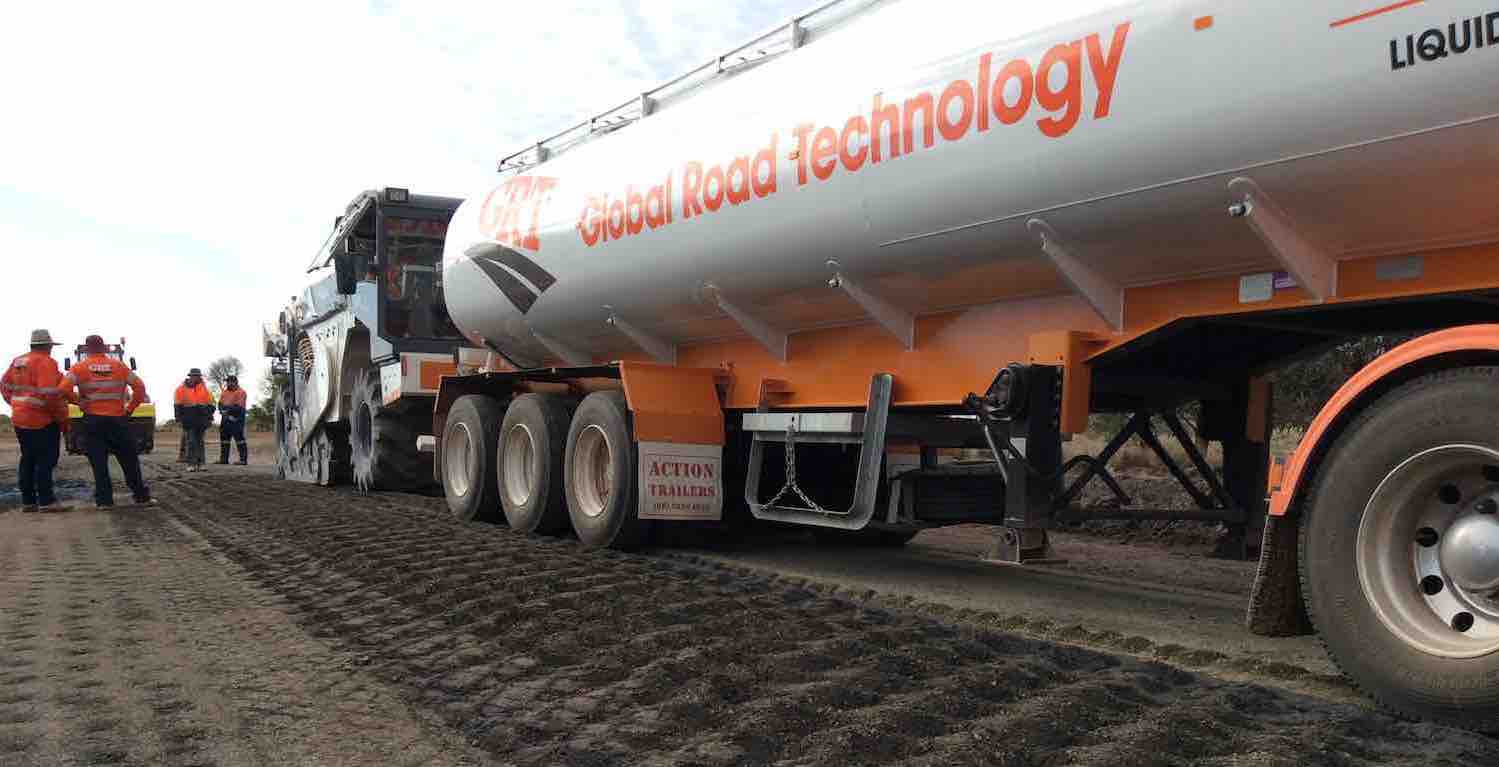
Soil stabilization is any process by which the soil properties for construction purposes are improved. It comprises various physical and chemical processes. The 3 types of soil stabilization are – Biological, physical and chemical.
Lime is the oldest among soil stabilization products since it has been used as a chemical stabilizer for thousands of years, even in the times of the Greek and Roman empires. All early civilizations used lime as a stabilizer for mud, floors and roads in and between their settlements. For the last two hundred years Portland cement and lime have been the main chemical stabilisers worldwide. Despite long tradition of use and extensive knowledge of these soil stabilization products, they have sincere limitations and thus road failures occur upon their application.
The main problem with cement is weak resistance to freeze-thaw cycles and thus in most parts of the world cracks occur in cement treated terrains and become larger over time. Cement application in soil stabilization is quite complex and requires thorough control of soil content, needed amount of water, compaction, etc. When it comes to lime, its application also requires extensive control of soil content since lime is not applicable to many soil types. Quicklime is considered the best among lime soil stabilization products but as it is available in powder form, lime dust is generated during application.
There is one more issue related to lime and cement production and use recognized nowadays; they are both predominantly based on quicklime (calcium oxide). Quicklime is made through process of heating calcium carbonate (CaCO3) under more than 2,300 degrees to drive off the CO2. Consequently, for every 10 tons of lime produced, more than 8 tons of CO2 is released into the atmosphere. When it comes to cement, the outcome is even worse: for every 10 tons of cement produced more than 9 tons of CO2 is released into the atmosphere.
Soil stabilization products that are water soluble, such as lime, fly ash and cement kiln dust, lose their effectiveness when precipitation occurs. Then they partially or completely leach away from soil. Therefore, long-term improvement through use of these soil stabilization products is not possible in regions with any precipitation occurrence. If the stabilizers contain harmful substances, which is often for fly ash and cement kiln dust, two problems arise upon leaching – destabilized soil and contaminated surrounding.
Resins have been used to stabilize soils with particle size distribution to which conventional methods are not applicable. They are adaptable to various climatic conditions. Resins do not bind soil particles together but coat them forming a waterproof barrier. However, soil matrix stays loose. These soil stabilization products have 1.5 to 4 times higher cost than conventional ones.
Global Road Technology developed formulas for soil stabilization solutions that are effective in all soil types, environment-friendly, cost-efficient and long-lasting.
GRT soil stabilization products are polymer-based which act by binding soil particles together and making soil matrix waterproof. There is no need for large amounts of ex-situ material and water during application processes. GRT stabilizers are non-toxic and are weather-resistant. Cost efficiency is supported by small quantities of product needed, treatment longevity and simple application and maintenance.
A specially formulated liquid polymer, GRT7000 is a key solution that dries clear, and is environmentally friendly. Engineered for use in civil construction, it can act as a clear polymer sealant as well as a high performing stabilization agent.
Applications:
GRT9000 was developed, for use in the construction of high-quality and cost-effective pavement applications.
Applications:
Polymer Cement Modifier (PCM) to be used in combination with traditional cementitious stabilizing agents that are currently used in road construction. GRT’s PCM, not only reduces shrinkage cracking but can also provide increased compressive strength and reduced water demand.
Applications:
For more information regarding Global Road Technology or soil stabilization products please contact GRT.
Are environmental regulations, health and safety concerns or potential profit loss a concern right now?
Contact Us Now